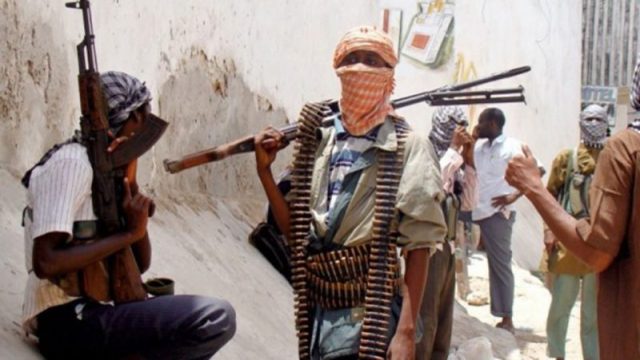4 min read
Introduction
The insurgency waged by Boko Haram and its breakaway factions has ravaged much of the Lake Chad Basin for over a decade. Aimed at establishing an Islamic caliphate in Nigeria, the jihadists have violently attacked the states and citizens and symbols of modernity in the sprawling area (Ayoade, 2014). In the North-West of Nigeria, gangs of loosely affiliated bandits have subjected the region to persistent violence. The violence which started as a crisis between Hausa farmers and Fulani herders in 2011 has since escalated into full-blown banditry where local communities are raided in Gestapo style. Constrained by climate change and the need for land-based resources such as water and pasture, nomadic Fulani herders and sedentary Hausa farmers have become locked in a violent struggle (Ugwuanyi, 2010). However, despite the similarities in the abuses of violence by the Boko Haram terrorists and the bandits, the latter have little or no ideological leanings or clearly defined leadership structures. But strangely, in the last couple of months, there have been growing mutuality between the jihadists and the bandits. This edition of Nextier SPD policy weekly examines the drivers of this violence collaboration and highlights how they can be curtailed. Spaces of Banditry In the last two years, criminal gangs labelled as bandits have taken over several communities in the North-West.
The history of modern banditry in the region is traceable to 2011 when the criminal gangs began to engage in pillage, cattle rustling, arms smuggling, protection rackets, kidnapping for ransom, and sexual violence following the conflicts between Hausa farmers and Fulani herders. Following poor response by the state and traditional authorities, the violence has escalated in recent years and now poses a huge threat to national security. In Zamfara, Kaduna, Sokoto, Kebbi and Katsina States, about 21 million people have been directly affected by the activities of bandits. The consequences have been devastating. A 2019 report by the Zamfara State government stated that over 6,319 people were killed, 3,672 people kidnapped, and more than 500 villages burnt in Zamfara State alone between 2011 and 2019. A background paper, “Stemming the Tears- A Pragmatic Approach to Solving Nigeria’s Security Challenges,” presented by Nextier SPD at the 27th NESG Summit in October 2021, shows that activities from banditry and terrorism in 12 months to September 2021 led to a combined incident number of 650. In this, total causalities were 2,905; 232 injured persons, while kidnapped persons were 2,504. The phenomenon of banditry has displaced over 200,000 persons internally and led to the emigration of over 35,000 Nigerians to the neighbouring Niger Republic.
Drivers and Implications of Relocation
Several reasons account for the attraction of the NorthWest to Boko Haram terrorists and the emerging mutuality between them and the bandits. First, the vastness of the region and its unique geography play a role in providing a sanctuary similar to the Sambisa Forest. For example, Kaduna State alone has 46,000 square kilometres of land, and the Birnin Gwari Local Government Area alone is three times the size of Lagos State, according to Kaduna State Governor El- Rufai. As the experiences of rural Latin America and the Far East show, bandits in Nigeria exploit ungovernable spaces for their nefarious activities. The North-West has many forest reserves which the governments have neglected over the years and are now being utilised by bandits and terrorists. Second, Nigeria’s North-West shares more than 900 kilometres of a poorly policed international boundary with the Niger Republic. These permeable entries and exit points serve as escape routes to criminals and facilitate the transportation of mercenaries and illegal weapons into the country as currently being experienced in the North-West by the influx of Nigerien and Chadian informal fighters.
Third, al-Qaeda is also making inroads into the NorthWest. The Commander of the US Special Operations in Africa, Dagvin Anderson, recently shared intelligence with Nigeria on how ISIS-West Africa and al-Qaeda are furthering their operations into the South “littoral areas”. Al-Qaeda’s penetration into the North-West is probably attracting Boko Haram terrorists to the region because they desperately need finance, personnel, arms, and other logistical support following the killing of their leader. As a confirmation of growing mutuality, some Boko Haram terrorists were recently reported to be providing training to bandits and other criminal gangs in Kaduna State on using deadly weapons. Indeed, unlike before, bandits in the North-West now deploy sophisticated weapons in their operations, including the PKT capable of shooting down an aircraft. With time, the relocation of terrorists to the North-West could transform banditry in the region into ideologically-driven jihadism, which could further broaden the spate of violence in Nigeria as done in the past (Alao, 2013).
Addressing Exodus of Boko Haram
Several policy measures are needed to scale down the relocation of both local and foreign terrorists into the North-West.
1. There is a need for tighter border control. In particular, the over 900 kilometres permeable international boundary, which the North-West shares with the Niger Republic, requires urgent policing with more security personnel and state of the art gadgets. This action will reduce how mercenaries and illegal weapons are transported through formal and informal borders. Judging by Nigeria ‘s low numerical military strength against the ‘wars’ it is involved in, and the state needs to prioritise its military deployment across the country, concentrating on ones with significant threats. Political solutions and negotiations should be considered for some conflict issues rather than a military solution.
2. There is a need for poverty reduction. Violence has become ubiquitous across the northern region in recent years because of the high level of mass poverty. The federal and state governments need to invest in irrigation projects to boost agricultural production.
The North does not only have massive arable land, but the region also has a huge population of people who are experienced in crop production and animal husbandry. It is important to note that Nigeria’s young unemployed population are the principal target of these groups.
3. There is a need for localised policing. The pervasiveness of security threats across the country, especially the northern area, shows a need for state or community policing or other state-organised layers of policing. The centralised police arrangement in place now cannot respond to local needs effectively. People familiar with the local terrain, culture and language should be recruited to police their areas in other federations such as Australia and the United States.
4. Bandits should be declared terrorists: Over the years, bandits in the North-West have perpetrated several terrorist activities, including pillage, cattle rustling, arms smuggling, protection rackets, kidnapping for ransom, and sexual violence. Despite these, calls on the Buhari administration to declare the bandits as terrorists have not been heeded. They are yet to label the bandits appropriately as terrorists will enable global anti-terror organisations to monitor their activities, thus reducing the inflow of funds and curtailing the bandits’ movements across international borders.
5. The Nigerian state needs to discourage tax payment to bandits. However, this action can only happen if the state provides the required protection. Bandits are currently alternative state and government in many communities, levying and collecting taxes. While the Nigerian state thinks this act does not mean a state takeover, it has multiple effects. These are, (a) it encourages the bandits psychologically and financially, (b) they continue to use such funds to support terrorists in the Northeast, who are already running short of funds, (c) these communities, which are mainly agrocommunities, will continue to abandon their farms and further increase Nigeria’s worsening food insecurity. Conclusion The North-West, where there has been a high rate of bandit activities in the last decade, has suddenly become attractive to local and international terrorists. If left unchecked, this could transform banditry in the region into radical jihadism. Thus, there is a need for tighter border control, mass poverty reduction, localised policing, and the declaration of bandits as terrorists to avoid this.
Our Take: For more than a decade, Boko Haram and its offshoot divisions have continued to ravage security in the northeastern part of the country with the aim of establishing an Islamic caliphate in Nigeria. These violent attacks by Boko Haram have produced other violent sub-groups such as the Fulani herdsmen which began as a dispute between local farmers and Fulani herders. Sadly the Fulani herdsmen attack has recently erupted into full-fledged banditry, with small towns raided without restraint from the security personnel.
Addressing the insecurity in the north would necessitate the federal and state governments investing in empowerment projects to boost agricultural production and other aspects of job creation. However, the need for tighter control along the North-west -Niger republic borders can not be overstated.
Source: Nextier













